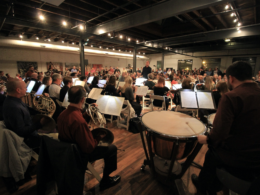The isolation, loneliness and uncertainty of the COVID-19 pandemic has been difficult for nearly everyone. But for those living with mental health challenges, substance use disorder or who are in recovery, these last 18 months have been particularly challenging. It’s why now, more than ever, access to behavioral health services is critical to the wellbeing of our community.
Richmond Behavioral Health (RBH) fearlessly champions the health, wellness and recovery of individuals and families in the Richmond community. Through the Richmond Behavioral Health Authority (RBHA) established by Richmond City Council in 1996, RBH brings essential care to the people it serves through crisis intervention, mental health services, developmental support and substance use prevention and treatment. As a provider of community-based services, RBH helps nearly 13,000 people each year – about 5% of Richmond’s population – regardless of their ability to pay. Richmond Behavioral Health Foundation, a nonprofit 501(c)(3) organization established in 2010, supports RBH’s mission through community awareness initiatives, fundraising and community partnerships.
What is behavioral health?
Behavioral health integrates the wellbeing of mind, body and spirit and encompasses mental, developmental and physical health, yet they are not mutually exclusive. For example, a person with schizophrenia could turn to drugs and alcohol to self-medicate, or a person with a developmental disability could experience depression. “People are really vulnerable now because of the pandemic,” says Carla Heath, Peer Recovery Specialist Coordinator at RBHA. “They need the wraparound services – the medical, clinical, peer support and crisis services – and I think that’s what really makes RBH special [that all of these services are available in one place].”
Living in recovery
Heath knows firsthand how special RBH is to the people who use its services. Following an eight-month psychotic episode, Heath got the help she needed but still felt stuck. “I felt like I was wearing this label on my head, and it wasn’t until I encountered peer support that I began to dream again and feel like I could do things,” she says. After sharing her story at a local meeting, Heath was encouraged by the meeting facilitator to explore working with her peers. She found a peer leadership and empowerment program and got her first dose of peer support. “I saw all these people who had been through some very difficult things and were going on and living their life and in leadership positions – it was very inspiring.”
For the last six years, Heath has worked as a peer recovery specialist coordinator at RBHA, training peer specialists and modeling living in recovery. She says her work has been a crucial part of her recovery journey because it gives her life meaning and purpose. “I know people count on me to be there to do my job so it really enhances the level of self-care that I practice in wanting to stay in a good place so I can do the best job possible,” she says.

Celebrating 25 years of health, wellness and recovery
RBH’s services and programs have been enriching the lives of thousands of people across the Richmond region for 25 years. To celebrate this milestone, RBH kicked off a year-long anniversary celebration on Aug.12, 2021, with a mural reveal at its headquarters on 5th Street. Painted by local artist Hamilton Glass, the artwork signifies the joining of individuals, families and community members to promote health, wellness and recovery and reaffirms RBH’s commitment to the City of Richmond and surrounding communities. RBH also is planning open houses over the next 12 months at its campuses throughout the community. Due to COVID-19, the first open house will be virtual. Facility tours and stories will be shared on social media and on the organization’s website to highlight the work RBH does to support the community and the ways people can become involved.
“We aspire to create an open dialogue in the community about the critical nature and ubiquity of mental health challenges,” said Dr. John P. Lindstrom, CEO of RBHA. “Never before has the community needed more support as we re-emerge from the isolation of the pandemic and wrestle with the challenges of funding and resource constraints for community behavioral health treatment providers. But no matter the obstacles, we have and will continue to serve the people and families most in need in our community.”
To learn more about RBH, visit its website or get involved by donating or supporting RBH’s programs through volunteering.










